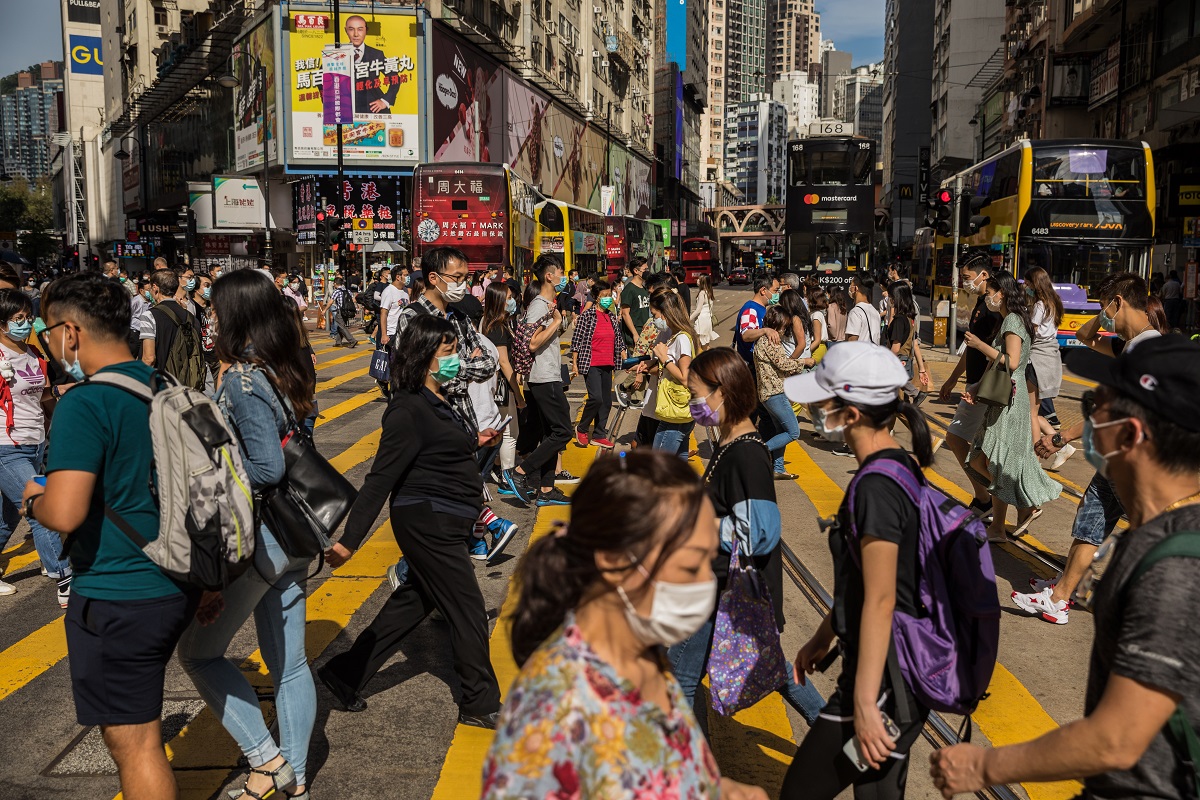Trump announces US withdrawal from World Health Organisation
Trump has long been critical of the WHO, and his administration formally withdrew from the organisation in July 2020 as the Covid-19 pandemic continued to spread.
Earlier, Health experts suggested that Hong Kong could be considered to be free of local transmission if there were no such cases after 28 days, or two incubation cycles for the coronavirus.

People wearing face masks as a preventative measure against the COVID-19 coronavirus cross a street in the Causeway Bay shopping district in Hong Kong on May 1, 2020. (Photo by DALE DE LA REY / AFP)
Hong Kong recorded no new COVID-19 case on Saturday, a day after the city eased restrictions amid the pandemic.
A handful of imported cases over the past week took the city’s tally to 1,044 with four related deaths, the South China Morning Post newspaper reported.
Advertisement
Saturday was also the 20th day in a row with no local infections.
Advertisement
Earlier, Health experts suggested that Hong Kong could be considered to be free of local transmission if there were no such cases after 28 days, or two incubation cycles for the coronavirus.
On Friday, Hong Kong residents were able to go to gyms, beauty parlours, bars, restaurants, and other public venues which were closed for more than a month after city officials allowed a partial reopening of eight types of businesses, but with conditions.
Speaking to the South China Morning Post on Saturday, executive councillor Lam Ching-choi said it could be time to explore lifting border restrictions between the city and Macau if the local coronavirus threat eased further.
Earlier this week, Chief Executive Carrie Lam announced the relaxation of social distancing measures, including allowing some entertainment venues to reopen and schools to resume classes, as the COVID-19 pandemic was, what she claimed, subsiding in the city.
On Labour Day, the city faced a resurgence of anti-government protests in the wake of of an improving coronavirus situation, with a return to riot police pepper spraying demonstrators to disperse them in a shopping mall.
Last week, Lam said that the city will extend its social distancing measures for another 14 days to ensure the COVID-19 pandemic will be completely controlled.
In a survey in March, 85% of respondents reported avoiding crowded places, and 99% reported wearing face masks when leaving home, which the authors say is an indication of their concern.
Advertisement